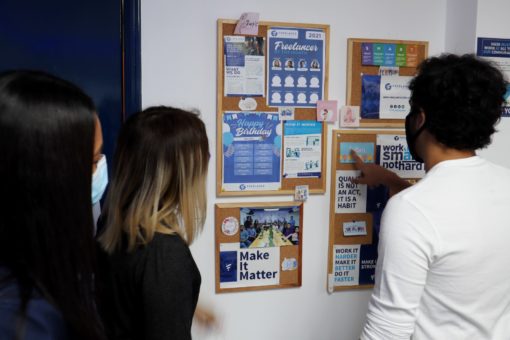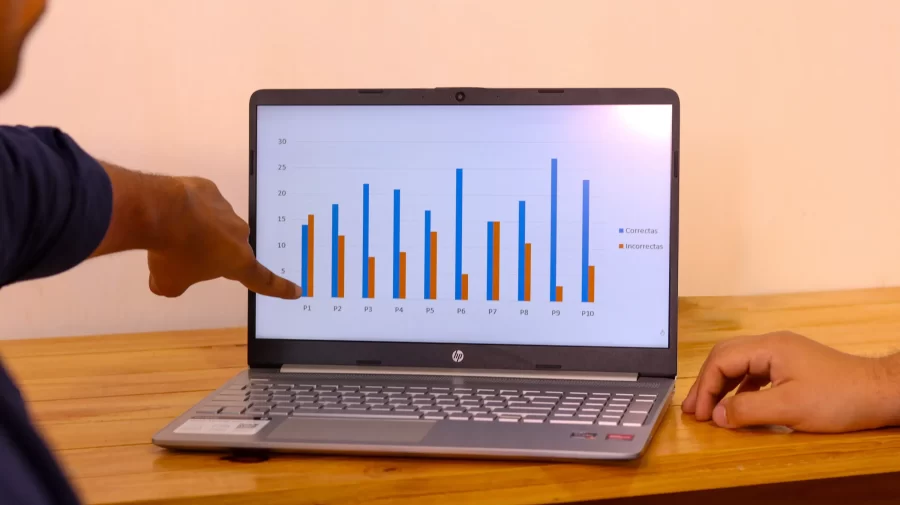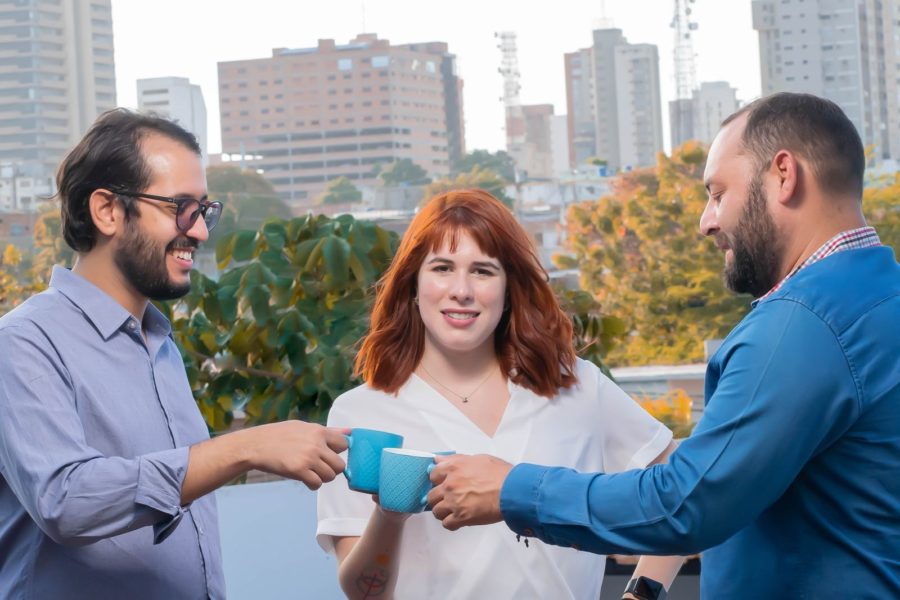In today’s business-related content, organizational psychology, and performance improvement recommendations, we can find all kinds of topics, a variety of points of view, and valuable information, all at our fingertips.
However, there is a great emphasis on communicating the importance of establishing routines, being absolutely organized regarding whatever activity is going to take place, and having almost impeccable time management. Being an efficient and productive professional in our day is mostly about that.
There is a lot of pressure on the issue of time and its use on the Internet. Everywhere we go we hear phrases such as “time is money” or “carpe diem“, and although the message may initially seek to be motivating and inspiring, once society focuses excessively on this idea and sets a goal of being productive at every moment of the day, this leaves us with a message that is lethal to our long-term mental health: the second spent resting is a wasted second, and wasting time will only push us further and further from success.
How to Take Advantage of Time?
This race to take advantage of time, not to let any moment pass without planning it in a structured agenda and dedicating it to our professional development or the fulfillment of work tasks puts us under an unsustainable pace of life. Even those who plan and have a defined organization give peace.
So, what happens when having a strict routine and following all the time management tips you read on a website is not your thing? What happens when, instead of pushing you to be productive, structuring your work so much demotivates you? Can you be productive in another way?
The answer is: of course, you can. If on the Internet there are a variety of points of view, just imagine how many there will be outside of it, in real people. Human beings are different, individual, and unique in our functioning and way of being, so it is unrealistic to try to fit everyone into the same mold and apply the same methods for different types of people.
Don’t despair if having impeccable time management doesn’t help you exploit your productivity, there are many different ways to find your way to it.

Time Is Subjective
One of the most latent sources of stress in the modern professional’s life is the perennial feeling that there is never enough time.
That your deadlines are piling up, that you will never be able to fulfill all your responsibilities in the time you allocate yourself for it, that time is slipping through your fingers and you are wasting it.
Observing this, we seem to forget that time is nothing more than an interpretation, a social construct, so to speak, something that we invented. And in most cases, those deadlines are too. We do well to remember that more than a strict system divided into hours, time is fluid and adaptable, and we should imitate that in the work routines we have (if we have them).
It’s not necessary to organize your workday into inflexible and unrealistic blocks of hours, rather analyze what you normally do, and how long it takes you to carry out each task and allow yourself to organize based on that, perhaps establishing a much less demanding deadline and instead of seeing it as the dead-line, seeing it as a goal. No pressure.
Excessive Planning Also Spends Time
Among the experiences of remote workers and freelancers today, many of those who are comfortable establishing a meticulously planned schedule and routine report that their workdays are shorter and they have more spaces to relax and unwind. However, on some occasions, people spend so much time focusing only on the planning part that they spend hours, even working days focused only on that.

So before you know it, you will have spent an entire day just setting up a schedule that will become a constant weight on your shoulders from there until the day it ends, if it ends before you pile up a new schedule just right on top of that.
Planning can help guide you and keep you in order when doing a task, but there is a long way to go between planning something and doing it. So it’s important to know that you cannot get stuck in that step.
You will never set up an absolutely perfect schedule, and in most cases, you don’t need it! There are other ways to stay organized and productive without locking yourself into imaginary hourly blocks.
Now that we have reviewed the main reasons you should not be obsessed with time control and planning, we would like to share some tips and recommendations to take that path to productivity your way. Things you can do to be efficient in your work, without falling into the trap of obsession with time and its use:
Set More Realistic Goals
What do I mean by this? Well… On many occasions, the number of tasks that we have been assigned by someone else is out of our control to have more or less, we must accept the number of responsibilities to fulfill within the work hours, but we can establish objectives more appealing to our reality when it comes to organizing and planning our schedules.
That is, instead of trying to get out of all the occupations before nightfall, analyze your skills, abilities, and the time it has taken you on previous occasions to do similar tasks so that you can accurately calculate the approximate time that it will take you to carry out each task and set a realistic limit for yourself.
This will take a lot of pressure off your shoulders and help you be more aware of your current potential as a professional, and through this, improve it more and more.
Write Down A Daily List Of Things-To-Do (No Time Scheduled)
Writing down all the things you need to do on a list helps you keep them in mind and also have them in a place that you can turn and look at any moment you need to. This will keep you active and aware of what to do, in addition, by sectioning the activities that you must do per day, you are taking a portion of the responsibilities and getting out of it, slowly but surely.
By not setting a specific time for each task, you are leaving space to do them at the pace that seems most convenient to you depending on how the day flows, but keeping in mind that you must finish those tasks that day.
Depending on how you feel, and what happens, you will do some in the morning, some else after lunch, and maybe the other two just before bed. It will be your decision and it will be as flexible and changeable as water. Just give it a try and you will see.
Also, there are few things as satisfying as crossing an item off a To-Do list, right?
Minimize Distractions
This point will be mentioned in absolutely any guide to be more productive and organized, or in general to have a better performance in any job, since distractions take us away from the given objectives, from carrying out any task efficiently.
However, this doesn’t work the same for everyone. While for some it’s enough to put the phone aside and focus on work, others find it very difficult to stay away from things like social media or other apps with the sheer force of will.
And this is nothing to feel bad about, in fact, the technology and configuration behind everything that happens on social media have the main objective of capturing and not losing the user’s attention at any time, locking them in, and not letting go. So, don’t beat yourself up on that.
What you can do is find a way to impose yourself not to do it. That is, if you already know that it is a great temptation, try to do things that prevent or make it difficult for you to fall into that distraction.
For example, disconnect the Wi-Fi connection, or if your work does not allow it, uninstall said application for as long as necessary, or even place your mobile in another room or far away place to reduce the chances of you taking it and without realizing you are again falling through the rabbit hole.
What Have We Learned?
In short, not everything is about completing tasks in an unrealistic set time, but rather, leaving space to be the professional that you are, being aware of your true capabilities, and accepting them as they are.
Being productive is not as important as staying healthy, and joining an eternal race towards workplace excellence in modern days is one of the least kind things you can do to your health.
If you found these tips helpful, be sure to follow us on Instagram and subscribe to our YouTube channel, where you will find a lot more information!





